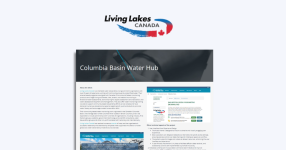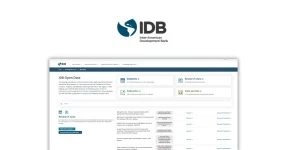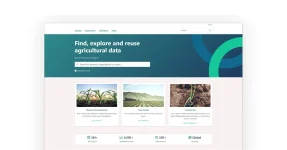Link Digital took part in two international events in September. Executive Director, Steven De Costa attended the 2023 Open Government Partnership (OGP) Summit in Tallinn, Estonia. This was followed by a visit by Steven and Link Digital CEO Marc Evans to Canada to mark the company’s expansion into that market.
Both activities were a powerful affirmation of company’s work in the open data and digital space since it was established in 2001. They also confirmed the value of open data as a force for good in helping to encourage a more informed citizenry, greater government transparency and accountability, and helping to deal with real world problems such as climate change, deliberate misinformation, or unethical models of artificial intelligence. Link Digital emerged from both activities not only feeling strongly positioned in the global open data ecosystem, but with an even greater desire to be active in this space, in a business and advocacy sense.
Tallinn: threats and opportunities for open government and open data
The OGP is a movement of national and local governments and civil society groups to further the aim of open government. The focus of the 2023 Summit, which took place on September 6-7th, was open government in the digital age and the potential for policy making to be more open and transparent and, thus, strengthen democracy. The Summit occurred against a radically different global backdrop to that which existed when the organisation was founded in 2011. There is now more evidence than ever of the positive impact open data can make in supporting greater democracy. But we also face a range of new threats: deliberate and systematic large-scale disinformation spread by malicious actors; a global lurch towards authoritarianism and attacks on human rights, and a declining security situation. As Estonia’s Prime Minister Kaja Kallas put it, this new reality was symbolised most obviously by the fact that the Summit took place a little more than 1,000 kilometres from the capital of Ukraine.1
In a recent post on our site, we posited the Comprehensive Knowledge Archive Network (CKAN), a piece of open-source software that can be configured and set up to function as a data platform, and the open source data community around it as natural allies of the open government movement. Not only does CKAN have the potential to provide real world benefits as a long term piece of digital public infrastructure but its user community can amplify OGP’s aims and principles. The role of open source software and the community around it was front and centre of a day-long side event at Tallinn, sponsored by Link Digital and organised by Open Knowledge Estonia and Open Knowledge Finland. Entitled, ‘The Tech we want to open governments,’ according to De Costa, the event “brought together a diverse group of people around the idea that technologies like CKAN have a positive role in enabling open government on a foundation of open data. Government can use Digital Public Goods to establish Digital Public Infrastructure (DPI) and collaborate in accord with the Standard for Public Code. All three are in alignment with CKAN and the services we provide at Link Digital.” The United Nations Development Program defines a DPI as ‘a combination of (i) networked open technology standards built for public interest, (ii) enabling governance, and (iii) a community of innovative and competitive market players working to drive innovation, especially across public programmes.’ 2 A Standard for Public Code is ‘a set of specifications and guidelines designed to maximise consensus about whether a digital solution conforms to the definition of a digital public good.’ 3
The Tallinn Summit outlined an ambitious plan to expand the OGP, particularly focused on increasing local government membership. It also saw the launch of the Open Government Challenge, a five-year strategy to increase commitments by government and civil society members to address themes like anti-corruption, digital governance, climate change, and open justice. 4 “It was clear that those participating in Tallinn recognised the potential for data and digital to unhinge or fracture societies, and participants discussed strategies that would safeguard it from threats and bolster any weaknesses,” said De Costa. “The ethical use of AI and the cleansing of information spaces by fighting disinformation and misinformation was seen as a particular priority.”
While the OGP’s members states are all broadly committed to open government, each faces different challenges to realising it: resource constraints, issues relating to political culture and national institutions, historical factors, and external threats. “Open Government Partnership discussions can oscillate between one side where deeply impactful issues drive openness on a current of activism, to the other side where strong principles of openness drive reforms toward better practices,” noted De Costa. “However, between the extremes are mild and ongoing improvements, and a maturing of our collective understanding that open governance is simply a healthy way to operate collectively.”
Link Digital was particularly glad to see the Australian government’s active re-engagement with the OGP process. This is evidenced by the presence in Tallinn of a delegation from Australia’s Open Government Forum, and the recent consultations to help formulate Australia’s third National Plan of Action. National government members of the OGP are required to develop National Action Plans outlining concrete open government reforms, through a multi-stakeholder process that actively engages citizens and civil society. Australia’s second plan was delivered late and the deadline for the third missed altogether, jeopardising Australia’s continued membership. 5 Australia’s finalised plan is due by the end of the year.
Canada: being embraced by the open data community
Link Digital recently incorporated a subsidiary entity in Canada, Datashades Inc trading as Link Digital Canada, and our visit was part of our ongoing orientation to the country’s open data ecosystem and how best to use our Australian experience to add value in the Canadian context. De Costa was key note speaker at an event in Toronto co-hosted with the Canadian Open Data Society, a non-profit that hosts the annual Canadian Open Data Summit (which will take in Victoria, British Columbia, on November 23rd and 24th this year).
The Toronto event brought together participants from the government, business and not-for-profit sectors to learn what governments in Australia and Canada are doing in the open data and data sharing space, what the benefits have been and how quality open data can be used to build public trust in government. Also featured was Cara Scarfone of Treasury Board Canada, speaking on Canada’s open data commitments in its 2022-24 National Action Plan on Open Government, Paul Connor, Executive Director of the Canadian Open Data Society, and Toronto City Councillor Paul Ainslie. Conner briefed the event on the Society’s current project of mapping open data ecosystems across national, provincial, territorial and municipal governments in Canada, as well as in civil society and the private sector.
The most pleasing aspect of the Canada visit, which also included an event with Innovate Ontario, was the enthusiasm with which Link Digital was welcomed into the Canadian open data ecosystem. Our values and approach resonated with those of our Canadian colleagues, and our expertise is viewed as one hundred per cent relevant, especially in public sector circles. “Delivering the keynote at an evening of talks with the Canadian Open Data Society was an entirely welcoming experience,” said De Costa. “Supporting those providing advocacy for open data is important for Link Digital, for CKAN and for me.”
Where to from here?
The Tallinn Summit and the Canadian visit confirmed Link Digital’s belief that open data, much like human rights, is a movement built on shared values. “Heading into Tallinn I was concerned that perhaps participants at OGP would have moved past open data, but I need not have worried,” said De Costa. “Open data remains recognised as an essential component in supporting open, healthy and productive societies. In Toronto, I was then able to experience the energy of a healthy community of practice, brought together by the Canadian Open Data Society.”
Like any movement, open data needs not just an infrastructure but consistent collective advocacy to further its aims. Link Digital emerged from its recent activities with a renewed determination to continue to support both.
In terms of our international work, Link Digital has ideas for how to accelerate the uptake of open data solutions in Canada. We are a sponsor of the upcoming Canadian Open Data Summit, due to be held in Victoria, British Columbia in November, where De Costa will be a keynote speaker on the subject of, ‘The architecture of trust: open and honest data’.
While it can sometimes seem far from these global debates, Australia is, of course, part of the open data movement, and our polity faces many of the same problems and opportunities as other OGP participants: global warming; the threat of deliberate disinformation – a factor vividly on display in our current constitutional referendum – and the challenge of getting our open data and digital settings right to improve government service provision and evidence-based policy formulation, ensure transparency, and build public trust.
The remaining part of 2023 will see Link Digital focused on two important processes underway locally. First, is the government’s upcoming 2022-2024 National Plan of Action. Developed as part of our OGP obligations. We hope it will embody a more ambitious agenda for open government reform than has been the case in previous plans.
Second, is the next version of the government’s draft Data and Digital Government Strategy, due to be released at the end of the year. In Link Digital’s submission to the consultation process we said that the draft Strategy succeeds in setting out many of the key aims, skills and aptitudes necessary for the government to take its data and digital capability to the next level. But we suggested the Strategy would be improved by embedding it in a much more robust values framework. If there is one thing that has been made clear to us over the last month, it is the need to frame data and digital initiatives much more firmly as part of a mission to improve trust in government, engage with a wider array of stakeholders in the digital ecosystem, and inoculate public institutions from the threat of disinformation.
As an organisation deeply committed to effectively leveraging open data to solve real-world problems, Link Digital understands the necessity of creating ethical AI. One important way we can begin to have a meaningful impact in this area is through engaging in discussions about the importance of open data and how we can make it work for greater transparency, equity, and democratic accountability. This is one of the many topics that will be discussed in a new series of forums being held by Link Digital on the last Thursday of every month, Australian EST. These forums will connect you with like-minded experts who are passionate about the importance of open data and want to stay updated on the latest developments in the field. They are free to attend and open to everyone. Register today.
1 “Prime Minister of Estonia Welcomes Open Government Leaders to Tallinn,” Open Government Partnership, September 6, 2023, https://www.opengovpartnership.org/news/key-announcements-at-the-2023-ogp-global-summit/
2 “Digital Public Infrastructure,” United Nations Development Program, accessed September 26, 2023, https://www.undp.org/digital/digital-public-infrastructure
3 “Digital Public Good Standard,” Digital Public Goods Alliance, accessed September 26, 2023, https://digitalpublicgoods.net/standard/#
4 “Prime Minister of Estonia Welcomes Open Government Leaders to Tallinn,” Open Government Partnership, September 6, 2023,
https://www.opengovpartnership.org/news/key-announcements-at-the-2023-ogp-global-summit/
5 “Open Government Partnership – Warning to Australia!” Open Government Partnership, February 22, 2022, https://www.accountabilityrt.org/open-government-partnership-warning-to-australia/



